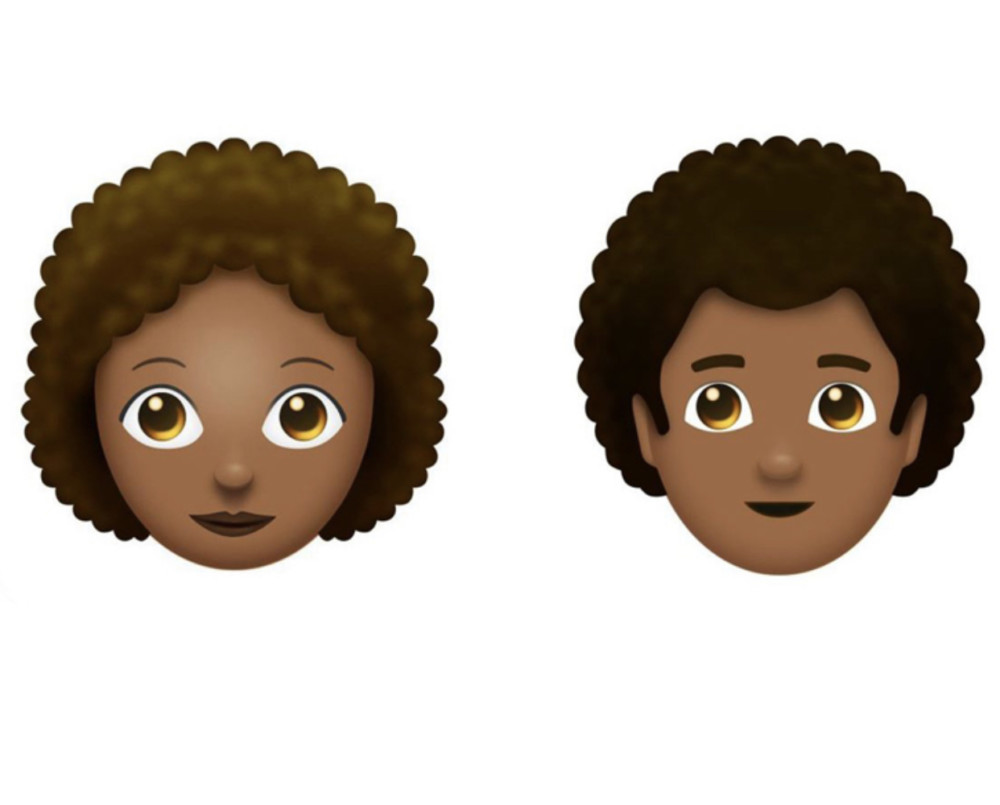By Christen A. Johnson
Chicago Tribune
WWR Article Summary (tl;dr) On Sunday, Rhianna Jones submitted a petition and a proposal for a natural hair emoji to the “Unicode Consortium”, the gatekeeper of emojis. As of Monday afternoon, the petition had more than 23,000 signatures.
CHICAGO
Growing up in Rogers Park during the 1990s and navigating black and white cultural spaces, Rhianna Jones often received messages that “straight hair is good hair.” For 12 years, Jones straightened her tightly coiled tresses so that she “could mirror what society deemed beautiful.”
It wasn’t until her 21st birthday that she started to embrace her natural curls. But Jones doesn’t want it to be that way for others, so she’s advocating for representation in a place many of us hope to see ourselves: emoji.
Jones, along with her friend Kerrilyn Gibson, 25, came up with the idea to develop Afro hair emoji, which were designed by Gibson. The pair started a Change.org petition rallying for the addition of the emoji.
“Natural hair is something that should be celebrated,” said Jones, 28, a freelance writer who now lives in Brooklyn, New York. “We have big stories, big voices and big personalities. All of that reflects itself in how our hair takes up space, and all of that deserves space in this digital era we’re living in.”
Jones submitted the petition and a proposal to Unicode Consortium, the gatekeeper of emoji, on Sunday, Marach 31, for potential acceptance in the 2020 selection. As of Monday afternoon, the petition had more than 23,000 signatures.
Jones hopes that Unicode not only acknowledges the merit of Gibson’s designs, but also why they’re important.
“I hope that this opens their minds to the power that people feel when they see themselves represented,” she said, “so that it extends beyond a singular Afro emoji.”
There are more than 2,800 emojis, with 59 new ones on the way, including a waffle, a drop of blood, an otter, a mechanical arm, interracial couples and a person who is deaf.
Jones acknowledges that Unicode has made strides in representing gender, identity and accessibility, but she hopes that Afro hair emoji are “just the beginning of a much larger conversation on cultural inclusivity and representation, in small and large spaces.”
Jaimie Whitson, a natural hair stylist at Glitz N Glam Beauty Bar in Oak Forest, appreciates Jones’ efforts.
“When I heard about the petition, my first thought was: It’s about time,” said Whitson, who’s been a professional stylist for 14 years. “We are not cookie-cutter, so that would be really nice to represent us and our hair. Having something personalized means a lot.”
The lack of Afro-textured hair in emoji is representative of a bigger, global issue, Jones said. She noted girls in South Africa who got sent home because they had braids, and a teen who had to cut his locks to participate in a wrestling match.
“I want people to straighten their hair exclusively because they want to, not because they feel like they have to,” said Jones. “We get to cherish exactly who we are, and we should not have to change that because of what society thinks.”
Whitson feels the same.
“In the past, the world told us the straight hair was in, and we bought it. We thought it would make us more beautiful, and that’s not true: Our natural beauty is our natural hair, what we were brought into this world with.”














































































































































































































































































































































































